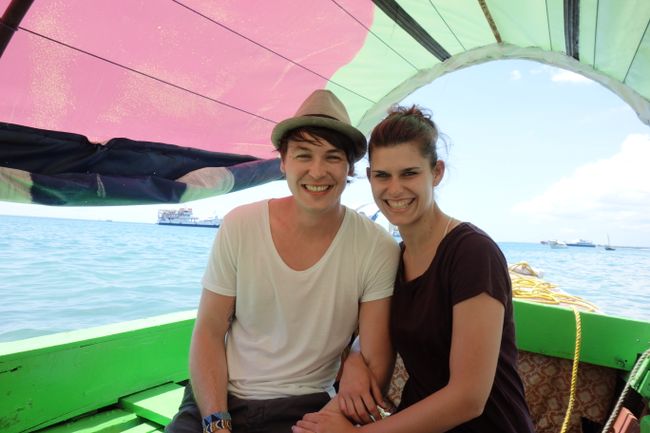Cuyabeno - Canoe Tour in the Amazon
Publikováno: 14.11.2017
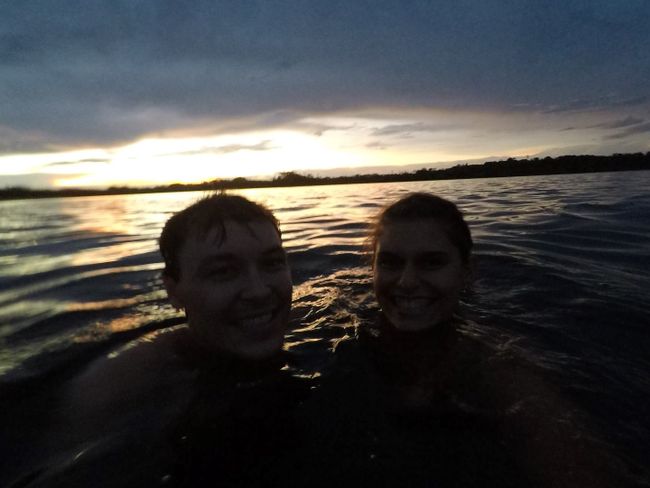
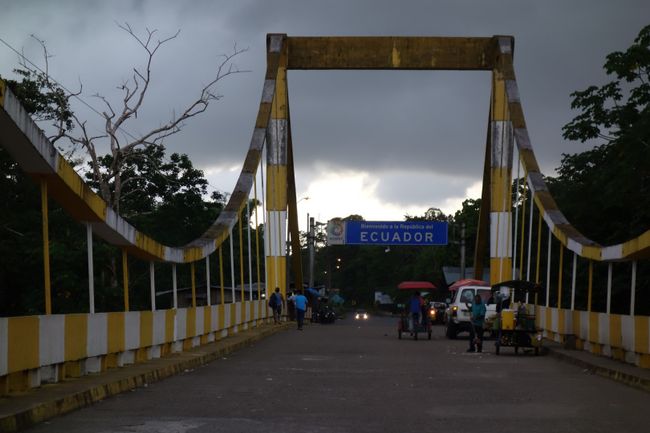
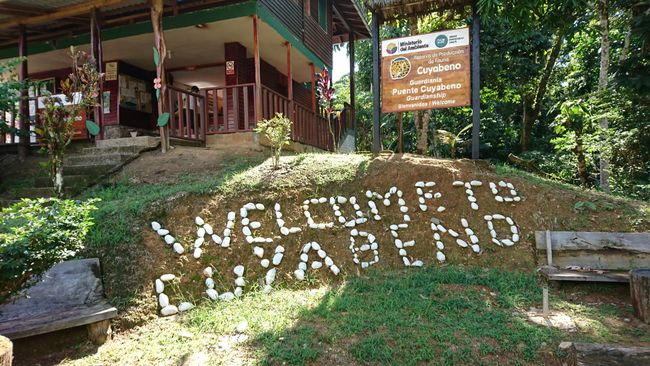
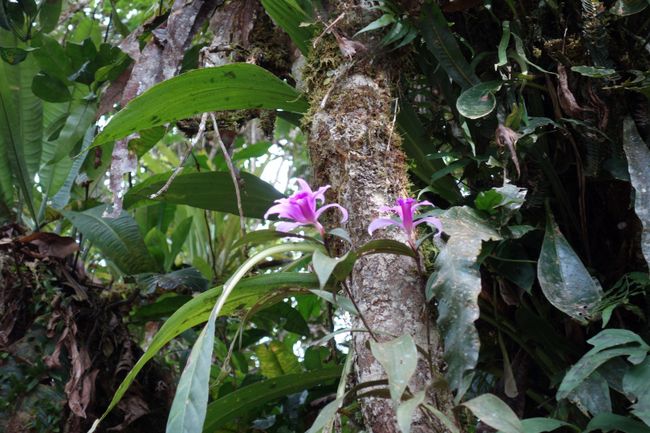
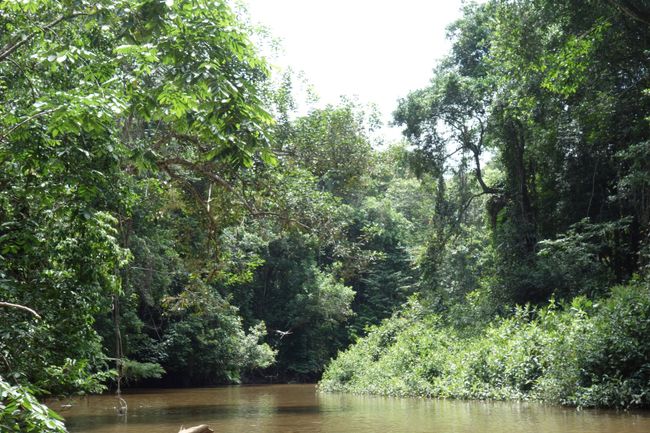
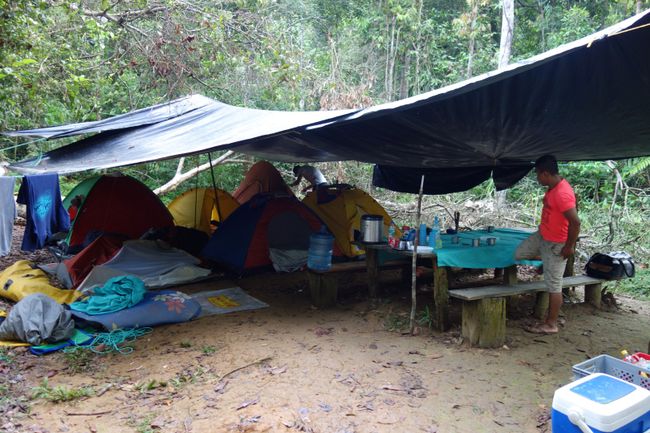
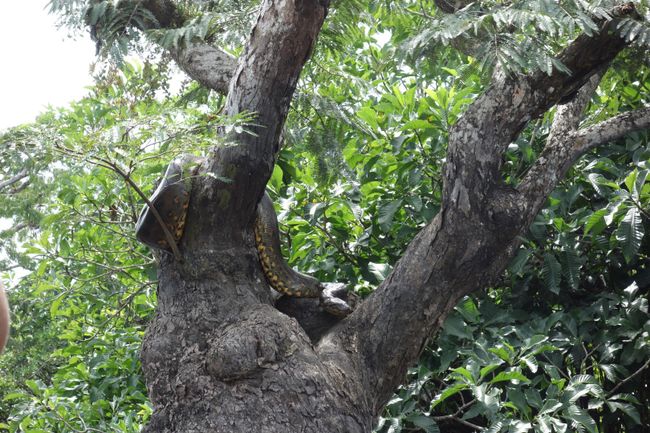
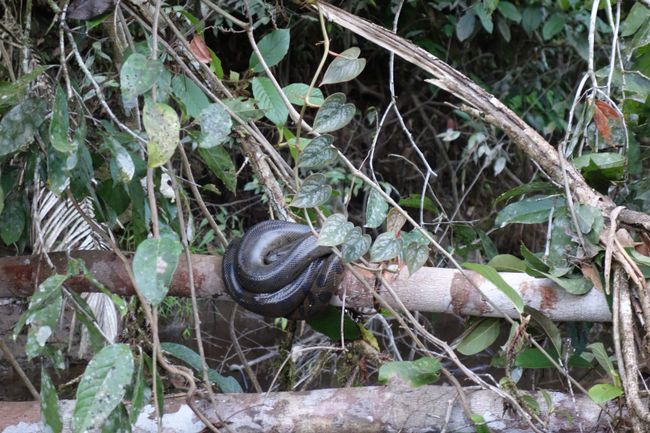
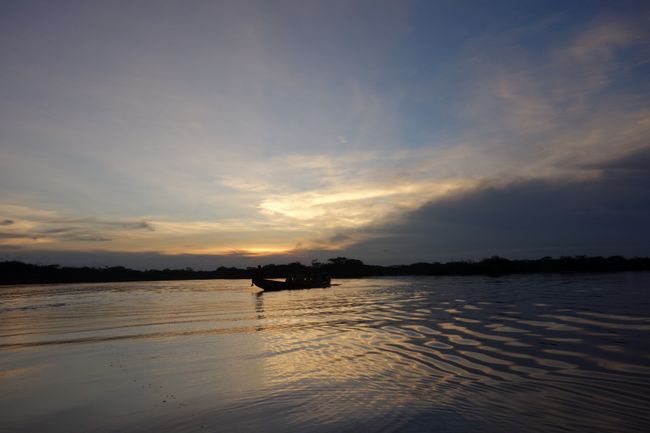
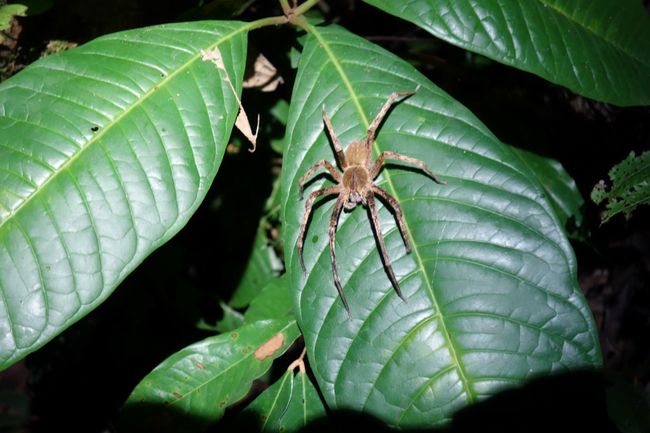
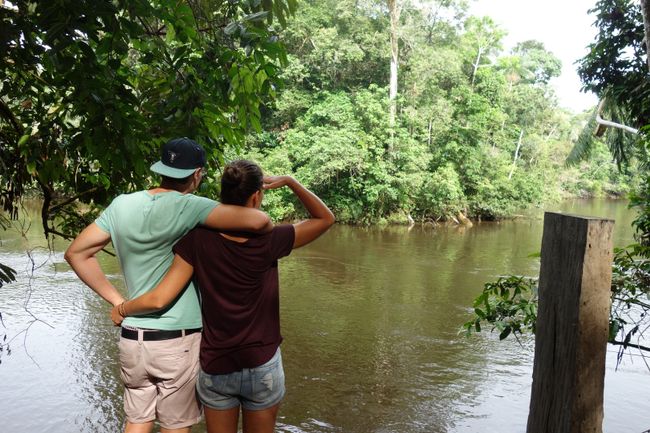
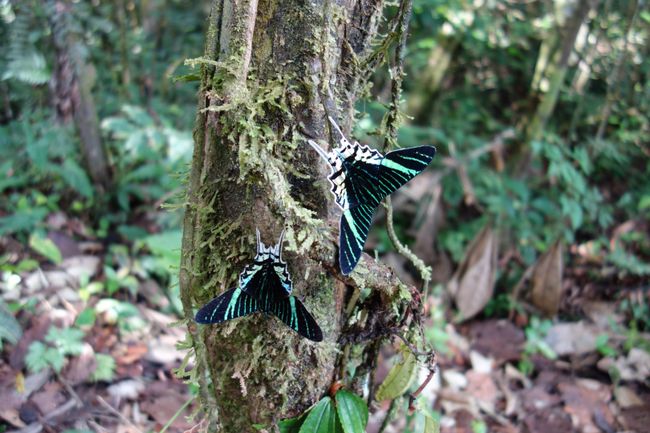
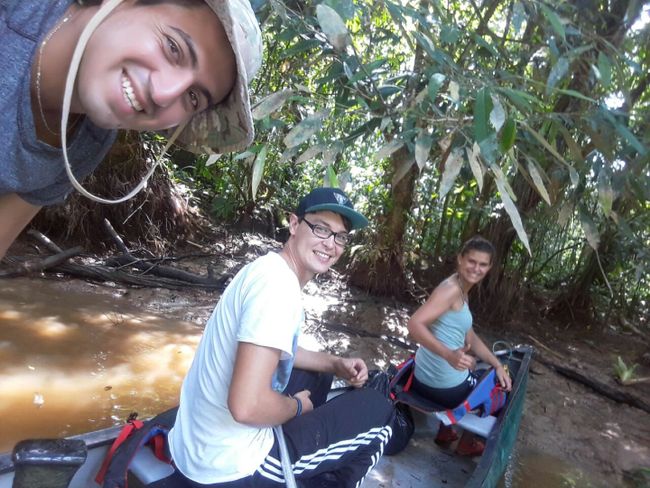
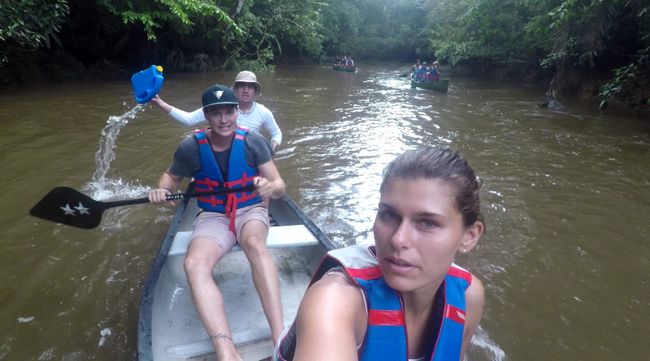
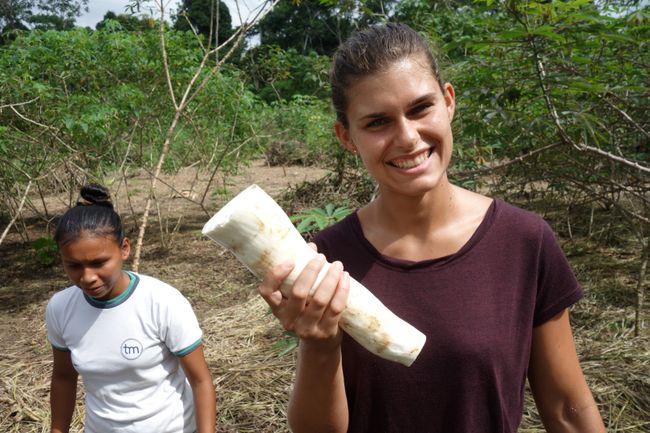
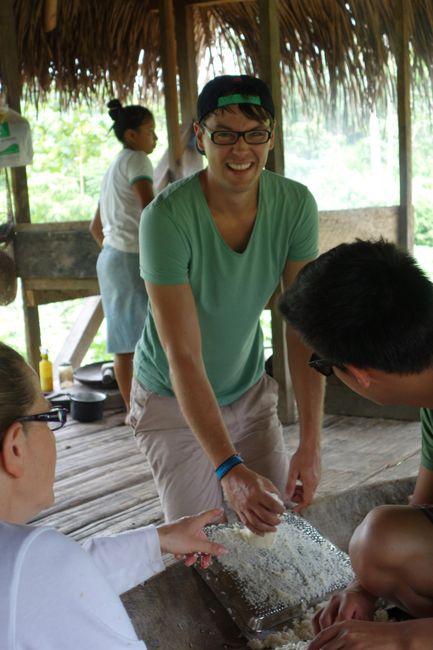
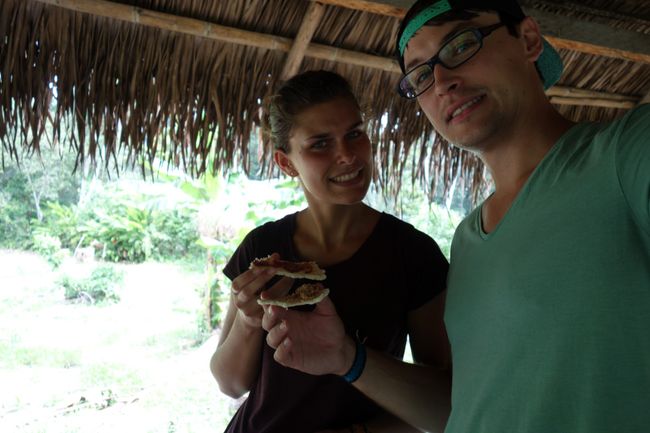
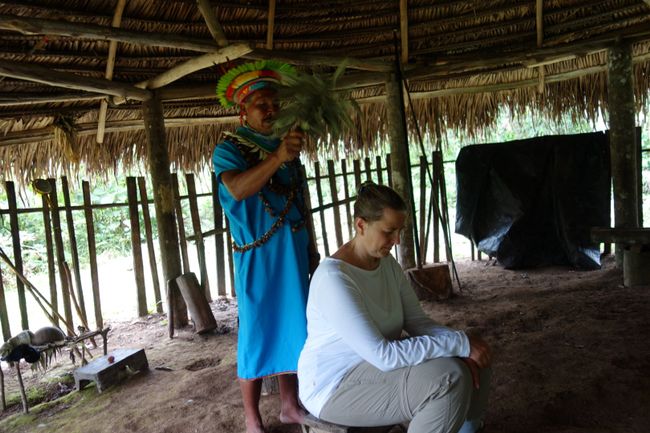
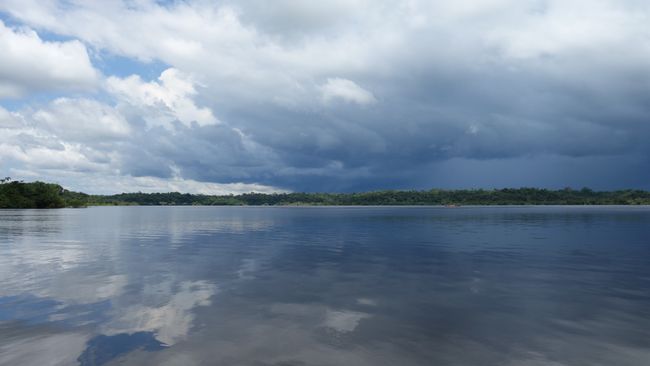
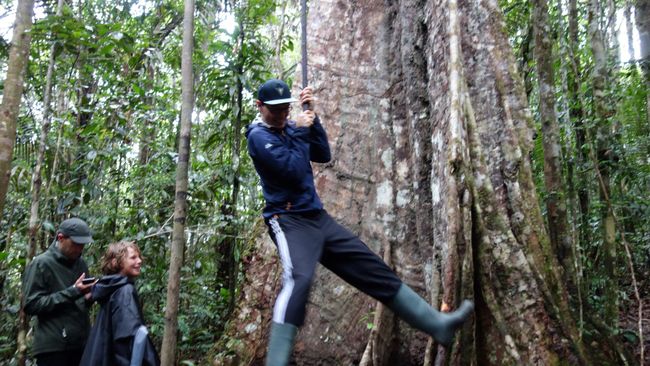
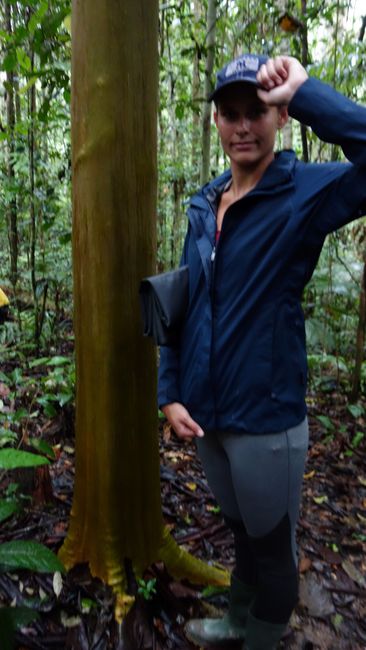
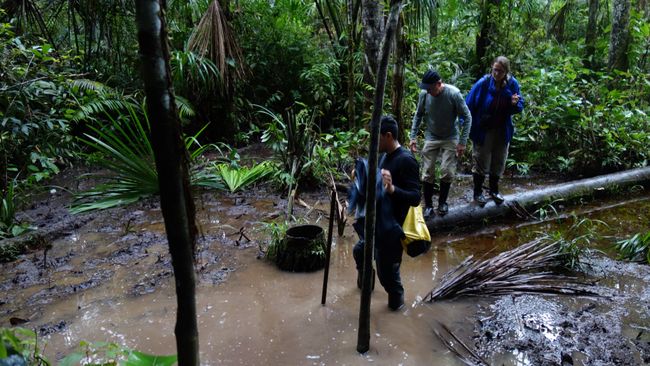
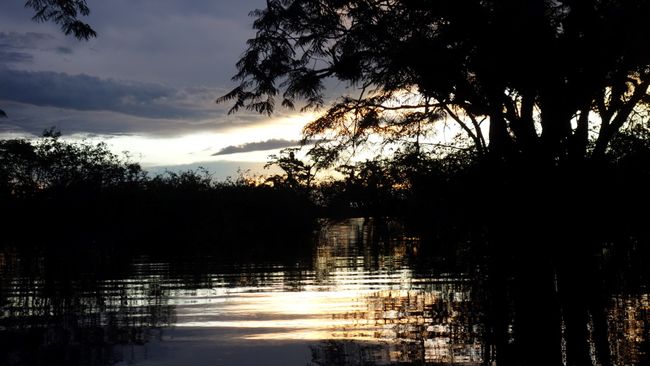
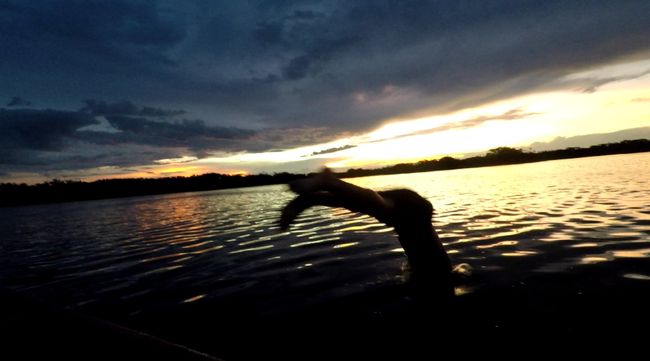
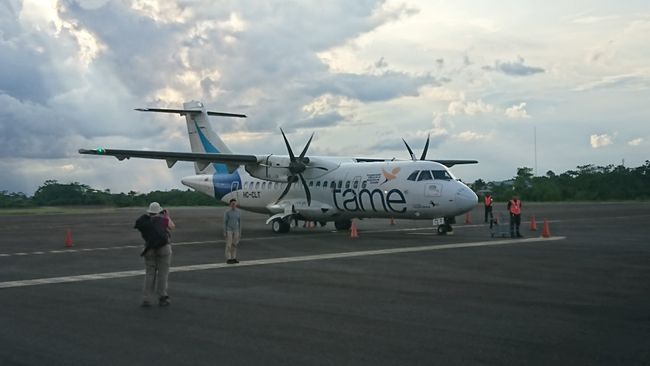
Odebírat novinky
From Bogota we start with an overnight bus heading to Ecuador. After 14 hours, we arrive in Mocoa (still Colombia). After breaking free from the siege of the local bus providers, we drive for about 4 hours to the border in a minibus. This time we dare to cross a border river (Rio San Miguel) on our own. 'Bienvenidos a Ecuador'. We find out that the border post is three kilometers away and we wave down the first bus we see. It's pouring rain again. The office building is relatively large, but we are the only ones crossing that afternoon. Exit stamp, entry stamp, done! Another short bus ride brings us to our hotel in Lago Agrio after a total of 22 hours of travel time.
The next morning, our local guide Fabricio picks us up at the hotel. Monika and Harro from Frankfurt are sitting in the bus and at the airport, we pick up a father-son duo from Potsdam/Quito. Of course, the Germans stick together again! We are driven to our starting point in a jeep. After a short lunch break, we go straight into the canoes. We share the last canoe with our guide and affectionately call it the 'Titanic'. Fully loaded, the water happily flows into our boat through the crack in the bottom, so Stephan gets to paddle alone every 5 minutes while Fabricio scoops the water back into the Amazon. With the onset of darkness, our 4 boats reach our first overnight station. A tent camp directly by the river in the jungle. The cook conjures up our dinner in a real open kitchen and we treat ourselves to a beer as a reward. A little tip on the side: don't go pee in the bush with flip-flops! The ants here in Ecuador don't joke around, ouch! Afterwards, we go KO in the tents while the nocturnal animals raise the noise level. While father and son fight an invasion of pincers ants in the neighboring tent, we drift off into the dream world in our intact plastic house.
On Tuesday, after breakfast, we go back into the canoes. Stephan watches suspiciously as Fabricio tries to stop our hole in the canoe with dirt. After a few minutes, we return to the old paddle-scoop routine. Occasionally, we pause in the canoes to observe birds, butterflies, or monkeys in their natural habitat. The Amazon region offers an extreme diversity of species. After almost 4 hours, we reach the 'Laguna Grande', which is a flooded forest. It's hard to imagine that in 2 months (dry season) you can walk on the 'lake bottom' here. In the meantime, we have exchanged our canoes for a larger motorboat and take a refreshing and well-deserved bath in the lake/forest. After a short time, we are called back to the boat, another boat has spotted a huge anaconda nearby. At first, we think it's a typical joke to scare the Gringos. We drive a few meters with the boat and indeed, around the corner in a tree, a 6-7 meter long anaconda is sunning itself and digesting a caiman (approximately). After a few photos, we return to the lake, but now no one wants to swim anymore. Strange... Finally, our boat takes us to a lodge on the riverbank. After lunch and a short rest (deep sleep), we take the boat back to the lagoon and spot more snakes and monkeys on the way. We enjoy the sunset from the lagoon and then zoom back to the lodge for our dinner. We round off the day with a night hike around the lodge. Stephan uses his headlamp (strength: truck high beam) to turn night into day with the push of a button. We see frogs, insects, nocturnal birds, and wonderfully highly toxic spiders. Before going to sleep, we thoroughly search our sleeping quarters. Good night!
On Day 3, after breakfast, we go to a nearby Siona village. What at first sounds like a stupid tourist attraction turns out to be a really cool outing. We bake yuca (cassava) bread with the grandmother of our boat driver. First, we harvest the roots ourselves from her garden and then process them gradually in a traditional way (without chemicals) into flour and bake the bread. The old lady directing her daughter-in-law-granddaughter with a shake of her head is delightful. The bread also tastes great, and if we ever have a greenhouse, yuca will be included. Afterwards, we drive to one of the larger Siona settlements and meet their shamans. The job of a shaman mainly consists of drinking ayahuasca (a plant-based psychoactive drug) to make contact with ancestors and to heal other people. After a short demonstration (healing ceremony), you can already imagine that this can lead to improvement in believers (placebo). Our guide also has his swollen knee (soccer) treated. Immediately after the ceremony, it starts pouring rain and we left our ponchos in the lodge, great! Even natural medicine seems to have its side effects.
On Day 4, we paddle around the Laguna Grande again in the small canoes. Then we go on a hike through the non-flooded part of the forest, although we have to walk through a good stretch of marsh. The game is called: don't let the water come over the rubber boot rim. Except for one exception, we are successful. In the forest, we see different animals, golden trees, and swing on lianas, which looks easier with Tarzan. At sunset, we're back on the lagoon and even though we now know that there are caimans, anacondas, and piranhas lurking in the dark water, we go for another swim because it's simply too delightful. On the way back to the lodge, Stephan is allowed to touch a boa on his own responsibility without getting bitten. Bliss!
On the last day, Nina goes alone for birdwatching in the morning because the morning grouch wants to keep sleeping. Then we go back to the starting point with the motorboat, where our shuttle back to Lago Agrio is already waiting. Before boarding the propeller plane to Quito at the 'airport' (a scheduled flight during the day), we take stock once again. Observed 9 out of the 10 resident monkeys and heard the 10th; seen all kinds of birds, including giant colorful macaws; caimans and pink river dolphins; huge colorful butterflies including the morpho butterfly; spiders and snakes plus a gigantic anaconda. Insane!
In the dry season, there is the opportunity to spot jaguars at the few waterholes... so we'll probably have to come back again! :)
Odebírat novinky
Odpovědět
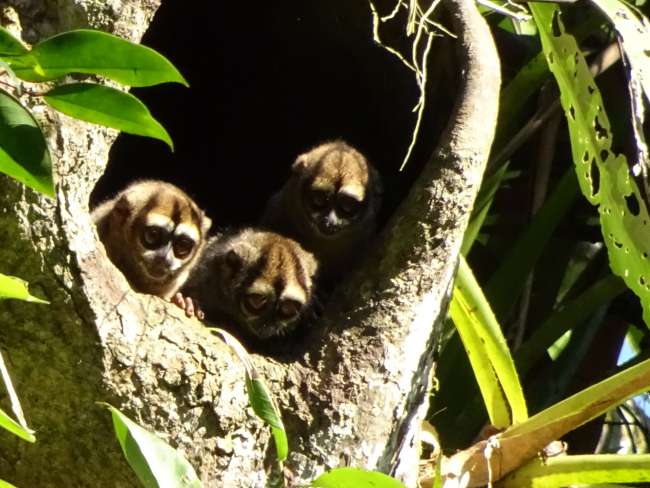
Cestovní přehledy Ekvádor

